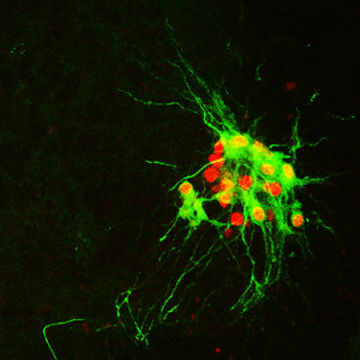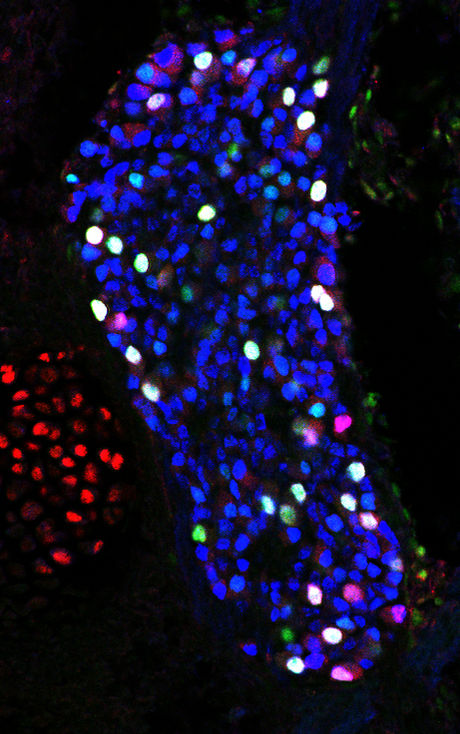
Assembly and Function of Motor Circuits
Research in the lab focuses on deciphering the mechanisms underlying the assembly and function of the neural circuits that control movement. Our research explores two broad questions: 1) What are the mechanisms driving the diversification and synaptic specificity of neuronal types during circuit maturation? 2) How do genetically encoded circuit architectures enable and constrain flexible motor behaviors? We study these questions in the context of the vertebrate spinal cord, where many of the core elements necessary for motor behaviors reside.
Our group employs genetic and circuit-based tools to determine the function of specific neuronal cell types essential for vital motor functions, including locomotion, posture, and balance. We use multidisciplinary approaches, including cellular and molecular profiling of neural types during development, mapping synaptic specificity in circuit connections, measuring and manipulating the activity of neurons during behavior, and conducting cross-species comparisons.
One area of intense focus has been defining the role of cell fate determinants in the specificity of connections within motor circuits. We have uncovered key determinants of the diverse spinal and sensory neuronal subtypes that govern locomotion, posture, and breathing. Through molecular profiling across multiple species, we have also elucidated many of the core genetic programs essential for limb-based behavior and provided insights into how these programs have evolved in the vertebrate lineage.
Current research interests focus how the specification of neuronal molecular identities contributes to the emergence of coordinated and flexible motor behaviors. Specific areas of study include: 1) defining the role of descending neuromodulatory pathways in motor control, 2) investigating the function of axial motor circuits in the dynamic regulation of posture and locomotion, 3) examining the development and evolution of peripheral signaling during sensory-motor circuit maturation, and 4) exploring whether defects in spinal circuits contribute to motor deficits in animal models of neurodevelopmental disorders.



















